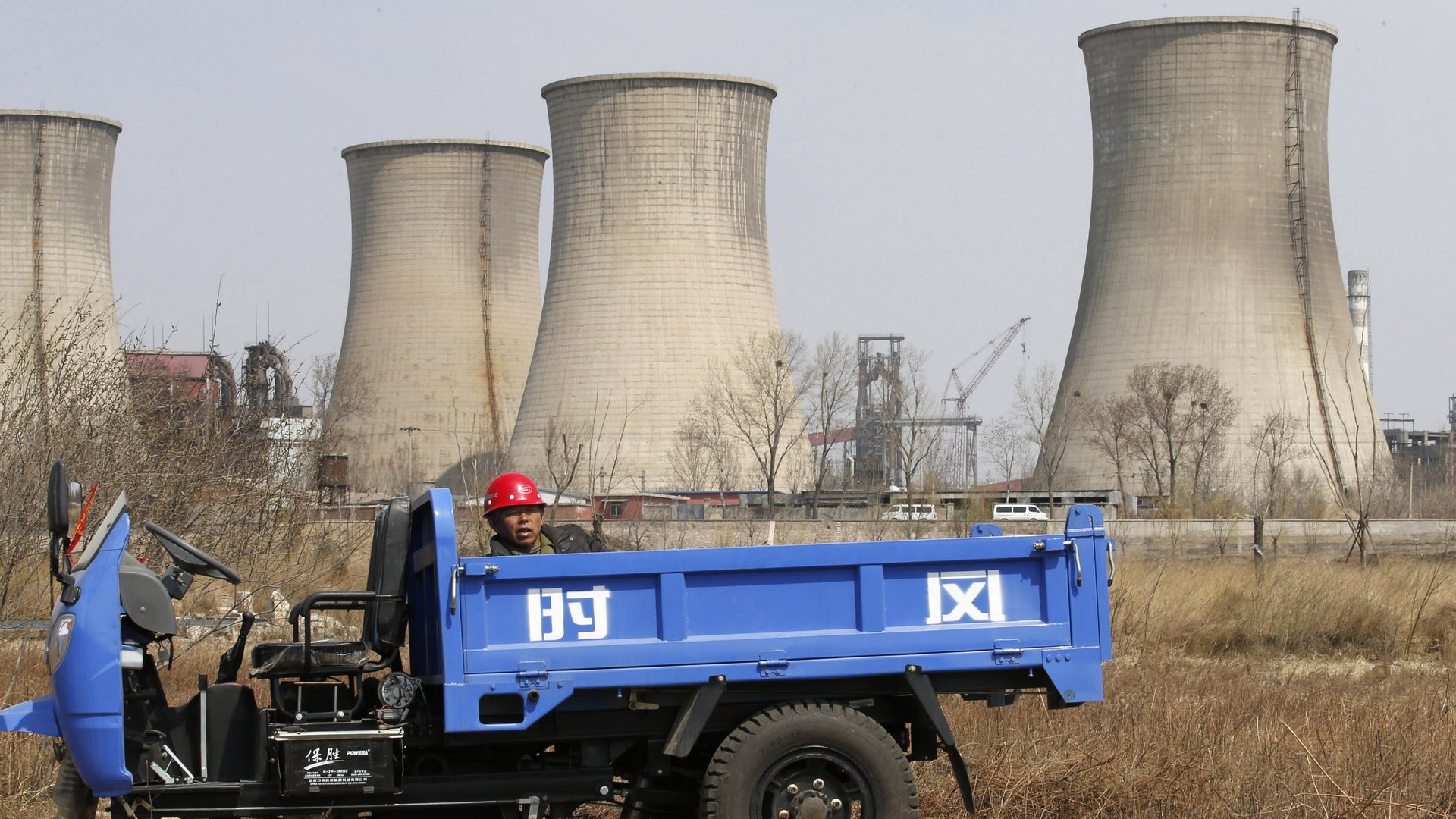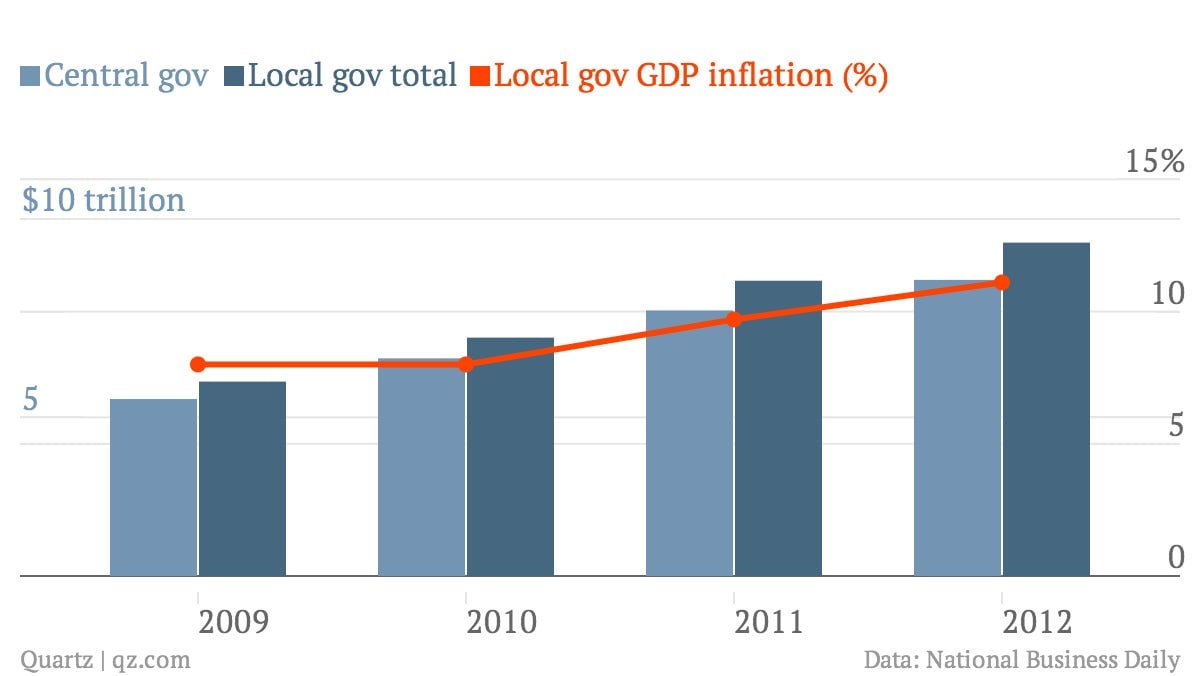Local governments inflated China’s GDP by $900 billion last year—and that’s not going to stop soon
Chinese president Xi Jinping recently said that the government would stop tying promotions of local government officials to GDP performance alone. This is important because local leaders under pressure to produce high economic output are much more prone to spending wastefully and in ways that harm the environment.


Chinese president Xi Jinping recently said that the government would stop tying promotions of local government officials to GDP performance alone. This is important because local leaders under pressure to produce high economic output are much more prone to spending wastefully and in ways that harm the environment.
Although this was hailed as a big breakthrough when Xi made the pronouncement, the last government made similar promises. Here’s a look at how effective those were:

Local governments reported a combined $9.4 trillion in economic output in 2012—11.1% higher than the central government’s final GDP calculation. And their noses have only gotten longer in recent years. Back in 2009, local government GDP inflation was only 8.0% higher than the $5.5 trillion the central government reported.
This isn’t just bureaucratic farce (though it is that too). Layers of inflated economic growth from the local level could be understating how sharp China’s slowdown actually is. National Business Daily reports that when the National Bureau of Statistics began doing spot-checks on industrial companies in Zhongshan, a city in Guangdong, it found that the local government reported a combined 85 billion yuan in output for 71 of its companies, just a bit higher than the 2.2 billion yuan they actually generated (link in Chinese). It’s hard to believe the central government statisticians would be able to filter out such an extreme degree of exaggeration when totting up their own GDP calculations. Distortions like that could be misleading central government economic planners, and as the recent interbank loan spikes hinted, that can lead to big policy missteps.
All things considered, though, inflating data is probably the least harmful outcomes of the Chinese Communist Party’s emphasis on GDP performance. In fact, it’s a lot better than relying on credit to stimulate the economy.
Unfortunately, just because Xi hints it’s safe for local officials to come clean about lousy economic output doesn’t mean they will—or that they’ll cut back on their credit habit.
Many poorer provinces don’t have a lot of options at their disposal. Particularly in the central provinces, foreign investment and domestic consumption simply aren’t enough to buoy growth (link in Chinese). As a provincial deputy governor told NBD about the need for local government to keep investing, “The central government sets the target at 7-8%, and since we’re not a province with a strong economy, our target has to exceed 10%. And with the not-so-great economic situation, surpassing that target is now more urgent.”
Even if the central government catches all that fibbing, it’s counting the credit-bingeing. That’s a good thing to keep in mind on July 15, when China announces its Q2 GDP.